31 Jan Legalized marijuana: What you need to know

Maine employers turned out in droves for our most recent Breakfast Briefing to learn about managing expectations and behaviors with legalized marijuana.
Clark Insurance and KMA HR Consulting recruited a talented and knowledgeable panel that included:
- Patricia Rosi, CEO of Wellness Connection of Maine, a large and growing medical marijuana dispensary
- Julie Rabinowitz, Director of Operations and Communications at the Maine Department of Labor
- Matt LaMourie, an attorney at Preti Flaherty who practices in their Employment Law, Litigation and Immigration Groups
Here’s what our audience heard for guidance.
- 1) Understand the drug and its uses
- 2) Classify job positions according to safety
- 3) Adhere to consistent procedures in dealing with impairment
- 4) Stay informed as the law and regulations take shape
Understanding Marijuana (cannabis) – Medical vs. Recreational
Ms. Rosi first dispelled the stereotype of the medical marijuana patient – think your next door neighbor, co-worker or family member.
There are more than 2,000 cultivated strains of marijuana with two main compounds:
- THC which produces psychoactive effects
- CBD that has medicinal value but no psychoactive effects
Wellness Connection of Maine dispensary
There are 29 states plus the District of Columbia in which medical marijuana is legal. Growing facilities are highly sophisticated, controlled and regulated and range from 30,000 square feet to more than one million square feet. Any dispensary in Maine must produce and process their own product to ensure safety and accountability. That said, patients can grow their own cannabis or purchase it from a caregiver.
There are five basic methods of using the drug
- smoking
- vaporizing
- tinctures/lozenges
- medicated edibles
- Salves/patches
Someone who is certified to use marijuana for medical purposes may have no visible signs of impairment or smell of “weed”. For some who use the THC version with psychoactive effects, it can be beneficial dealing with issues like post traumatic syndrome disorder (PTSD). And just like any other medicine, dosing is critical to effective treatment.
There are approximately 37,000 patients in Maine including some who are certified to use cannabis under workers’ compensation coverage.
Identify Safety-Sensitive Jobs NOW
The governing principle of “safety first” will help employers determine job positions for which a policy of ZERO TOLERANCE (ZT) is applicable (e.g. machine and equipment operators, child care workers, medical personnel, chemical handlers, etc.). That means that if a drug test were administered, it must show no traces of marijuana use. For example, this is standard operating procedure for truck drivers under federal jurisdiction.
For now, the definition of “safety” in Maine can be very broad but likely will be narrowed as state officials draw up regulations. For example, anyone who drives only occasionally in the course of their work might be considered a “zero tolerance” candidate even though they are not regulated by the federal government. That applies as well to those fulfilling U.S. government contracts.
People handling money or finances could be classified in the ZT category on the basis of their potential harm to customers or their employer’s financial stability. Whatever choices you make, they must be consistent, well-supported and those choices ought to be reviewed with an attorney or HR specialist. In addition, these classifications should be reviewed with employees upon hire.
The Law
First, let’s be clear that Maine’s new law legalizing the possession and use of marijuana is in conflict with federal law that lists it as a controlled substance and a new administration may have a different attitude toward enforcement.
The Maine referendum language will require the legislature to bring other statutes in line with the new law in terms of regulation. Unless dealt with as emergency legislation (two-thirds vote of both houses of the legislature), the changes are unlikely to become law until the fall of 2017. In the meantime, there is a recount underway that should conclude some time after the first of the year. Presuming the results remain the same, personal use will be legal 30 days after the referendum results are certified by the governor.
For employers, here is the pivotal wording from the referendum language that a majority of voters approved:
2. Employment policies. This chapter may not be construed to require an employer to permit or accommodate the use, consumption, possession, trade, display, transportation, sale or growing of cannabis in the workplace. This chapter does not affect the ability of employers to enact and enforce workplace policies restricting the use of marijuana by employees or to discipline employees who are under the influence of marijuana in the workplace.
3. School, employer or landlord may not discriminate. A school, employer or landlord may not refuse to enroll or employ or lease to or otherwise penalize a person 21 years of age or older solely for that person’s consuming marijuana outside of the school’s, employer’s or landlord’s property.
It is essential to start discussions NOW with employees and adopt clearly written policies and procedures that are applied consistently. In addition, there should be post-event procedures in case of infractions or accidents. Communicating clearly will help set boundaries for applicants and employees regarding discipline and any drug or impairment testing policies. Employers interested in learning more about drug testing for applicants and employees should visit the Department of Labor’s website at
https://www.maine.gov/labor/labor_laws/substance_abuse_testing/index.html to ensure that they are following appropriate state and federal law.
While supervisors may attempt to spot impairment, it most likely will be co-workers who see potentially unsafe behavior. Everyone at work needs to feel safe in reporting impairment for the welfare of the violator, themselves and others. Employment guidelines also need to be clear about reporting impairment including confidentiality.
The Maine Department of Labor’s SafetyWorks division will be conducting four impairment training sessions in 2017 and can add more if demand warrants. For more information about their training topics, click here. Also sign up at their web site for automatic notifications.
From an insurance perspective, be sure you are comfortable with your employment practices liability limits relative to your operations and assets. In addition, because you cannot ask a job applicant about their drug use, be certain your offer of employment includes conditions such as a drug test or other behavior that can be disclosed under the law.
Finally, stay informed and reference only those blogs or web sites that have a verifiable authority who has produced the content. Managing your workforce, workplace safety and liability should not be a matter of speculating about best practices.



